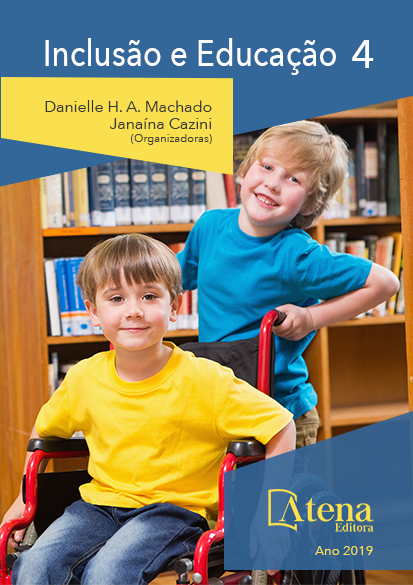
A CARTA ABERTA COMO INSTRUMENTO DE AÇÃO SOCIAL: RESSIGNIFICANDO O PROCESSO DE PRODUÇÃO ESCRITA NA EJA
Diante da diversidade de sujeitos
que fazem a Educação de Jovens e Adultos
(EJA), esta se torna uma modalidade que requer
um olhar especial, atento às necessidades de
cada aluno, que são muitas, e as que mais
se destacam, do ponto de vista do ensinoaprendizagem da língua portuguesa, são as
dificuldades com a leitura e a escrita. A fim
de trabalhar, especialmente, as dificuldades
relativas à produção escrita, realizamos
uma pesquisa de natureza qualitativa, com
delineamento de uma pesquisa-ação, na qual
realizamos um estudo com o gênero textual/
discursivo carta aberta com o objetivo de avaliar
até que ponto a utilização de uma sequência
didática (DOLZ, NOVERRAZ e SCHNEUWLY,
2004) construída a partir do referido gênero
pode contribuir para um melhor desempenho
na produção escrita dos alunos da 8ª série
do 2º segmento da Educação de Jovens e
Adultos de uma escola pública do município
de Capim-PB. Para tanto, recorremos aos
estudos sobre os gêneros textuais/discursivos
desenvolvidos por Bakhtin (2011), Marcuschi
(2008, 2010), e também aos estudos sobre
sequência didática desenvolvidos por Dolz,
Noverraz e Schneuwly (2004). Os resultados
da análise mostram, entre outras questões,
que a sequência didática elaborada facilitou o
desenvolvimento de capacidades de linguagem
necessárias à produção escrita do gênero carta
aberta, especialmente no que diz respeito aos
elementos constitutivos desse gênero. Ademais,
é válido salientar que o gênero trabalhado
contribuiu para inclusão social dos alunos da
EJA de maneira significativa, pois os educandos
perceberam que eles podem e devem ser
protagonistas das práticas de letramento.
A CARTA ABERTA COMO INSTRUMENTO DE AÇÃO SOCIAL: RESSIGNIFICANDO O PROCESSO DE PRODUÇÃO ESCRITA NA EJA
-
DOI: 10.22533/at.ed.32219150124
-
Palavras-chave: Gênero textual/discursivo. Carta aberta. Sequência didática. EJA.
-
Keywords: Textual genre/discursive. Open letter. Didactic sequence. EJA.
-
Abstract:
Given the diversity of subjects that
make the Youth and Adult Education (EJA), this
becomes a modality that requires a special look,
attentive to the needs of each student, which are
many, and those that stand out the most, from the
point of view of teaching-learning portuguese,
are the difficulties with reading and writing. In
order to work, especially, the difficulties related to writing production, we conducted a
research of a qualitative nature, outlining an action research, in which we carried out
a study with the genre textual/discursive open letter with the objective of assessing to
what extent the use of a didactic sequence (DOLZ, NOVERRAZ and SCHNEUWLY,
2004) constructed from this genre can contribute to a better performance in the written
production of the 8th grade students of the 2nd segment of Youth and Adult Education
of a public school in the municipality of Capim-PB. For this, we used the studies on
the textual/discursive genres developed by Bakhtin (2011), Marcuschi (2008, 2010),
and also studies on didactic sequence developed by Dolz, Noverraz and Schneuwly
(2004). The results of the analysis show, among other issues, that the elaborated
didactic sequence facilitated the development of language skills necessary for the
written production of the open letter genre, especially with respect to the constituent
elements of this genre. In addition, it is worth noting that the work genre contributed
to social inclusion of the students of the EJA in a significant way, since the students
realized that they can and should be protagonists of the literacy practices.
-
Número de páginas: 15
- Lidiane Moreira Silva de Brito
- Laurênia Souto Sales
- Marluce Pereira da Silva


